
views
A document signed between the centre and Naga National Political Groups (NNPGs) working committee ‘on the resolution of Naga political issue’ reported on Wednesday by The Hindu, which apparently was signed by the government of India interlocutor RN Ravi, reads that 'the government of India recognises the historical and political rights of the Nagas to self determine their future in consonance with their distinct identity'.
The document, whose other signatories include members of the NNPGs, is likely to force the centre’s hand in the ongoing negotiations between Nationalist Socialist Council of Nagaland (Isaak- Muivah) NSCN (I-M), one of the largest insurgent groups in the North East, and senior officers of the Intelligence Bureau, which some news reports have claimed to be on the verge of collapse. Reports, including those published by The Hindu, have reported that Home Minister flew in Neiphiu Rio, Nagaland Chief Minister and Himanta Biswa Sarma, Assam minister, and the convenor of BJP’s North East outreach North-East Democratic Alliance (NEDA), to meet NSCN (I-M) chief T. Muivah who has been camping in the national capital for the past one month reportedly.
Conspicuously absent from these talks is Nagaland governor, RN Ravi, after the insurgent group demanded his removal accusing him of derailing the peace process. After 100 rounds of talks over the past 23 years, between the insurgent group and the center, both sides have shown signs of impatience. One of the sticking points between the two sides is the contentious issue of a separate Naga national flag and constitution.
In October last year, in a statement, Ravi had in a statement ruled out a separate flag and Constitution for the Nagas as demanded by the NSCN-IM. To counter which, last week, the group released a copy of the original 2015 framework agreement, which stated that the Centre had agreed on “sharing the sovereign power” and providing for an “enduring inclusive new relationship of peaceful co-existence of the two entities”.
In this explainer News18 recalls how the peace talks, which were announced with a lot of fanfare five years ago, in August 2015, in the presence of the Prime Minister, have hit roadblocks over the past few months and answers some basic questions about the Naga peace talks.
The Fallout
On August 3, 2015, the Centre signed a framework agreement with the NSCN (I-M) to resolve the Naga issue, nearly 18 years after the government’s ceasefire deal with Naga groups, though the exact details of the agreement weren't made public due to 'security reasons'. The peace talks continued amicably and then the appointment of Ravi as the governor of Nagaland in July 2019 was received positively in the state as a message from New Delhi that the talks would be concluded soon.
But then in October 2019, Ravi issued a statement in which he blamed the “procrastinating attitude” of the NSCN (I-M) for the delay in a mutually-agreed draft comprehensive settlement. At a meeting held in Kohima on October 18, Ravi reportedly said the NSCN-IM has adopted a procrastinating attitude to delay the Naga settlement, raising the contentious symbolic issues of separate Naga national flag and constitution, despite being "fully aware" of Indian government's position regarding the issues of separate Naga national flag and constitution. NSCM (I-M) also issued a strongly worded statement in response criticising Centre's "Machiavellian handling” of Naga political issue.
The next big fallout between the two parties happened when Ravi, in a letter to Nagaland Chief Minister Neiphiu Rio, wrote that the “scenario in the State is grim” and that “law and order has collapsed." The Nagaland governor blamed “rampant extortions and violence” carried out allegedly by “armed gangs” who, he accused, were running parallel governments, “challenging the legitimacy of the state government”. Following this the home department of the state asked its employees to self-declare if any of their family members and relatives were members of underground organisations — later, it said the order was passed at Ravi’s insistence.
NSCN (I-M) described the order “one retrograde step worked out insidiously to cripple the Naga political movement...”. This is when NSCN (I-M) demanded the removal of RN Ravi from the peace process.
Then on August 14, which is observed as the ‘Naga Independence Day’, NSCN(I-M)’s general secretary Thuingaleng Muivah, asserted that the Nagas will “neither accept the Union of India nor her Constitution at any point of time”. A day later RN Ravi in his Independence Day speech described Nagaland as the “worst-performing” state and said “vested interests had misappropriated the peace dividends”.
Present Status
As of now the talks are being held between the leadership of the NSCN (I-M) and IB officers in Delhi. The insurgent group in a statement issued on Sunday said that the talks have not descended from PM-level to IB-level and blamed RN Ravi for creating an "imbroglio" in the talks.
"The Interlocutor carries the mandate of the PM. NSCN has been talking to Ravi as Interlocutor and not as Governor. But since Ravi created an imbroglio in the talks process, the PM gave the mandate to continue the talks to a team of the IB as a fast-track channel for communication and clear the pending points in the competency. Once everything is clear, the agreement will be at the political level of the Prime Minister," the statement issued by the insurgent group read.
Sticking points
By saying that Naga flag and constitution were non-negotiable and that the agreement included the idea of unification of all Naga-inhabited areas — the greater Nagalim — with large tracts of land of Arunachal Pradesh, Assam and Manipur, Muviah has arguably strained the peace talks and made many quarters anxious.
The Assam government has reportedly said it wouldn't part with “even an inch of land”, the All Arunachal Pradesh Students’ Union warned against any “territorial changes” while finding a solution. Manipur Chief Minister Nongthombam Biren Singh said he has received the Centre’s assurance that the peace deal with the NSCN (I-M) will not affect the territorial integrity of Manipur.













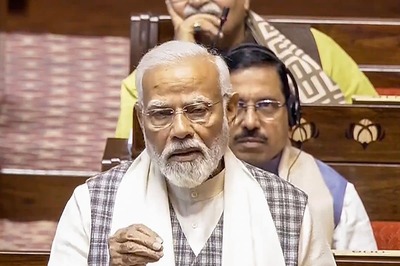
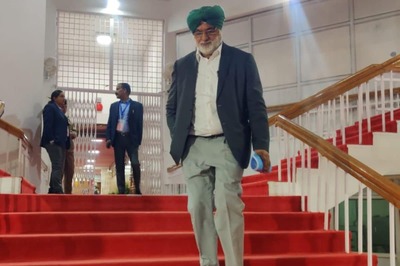
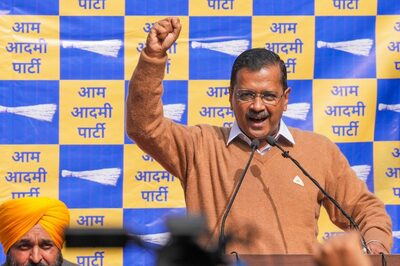
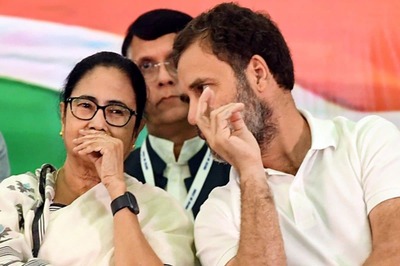


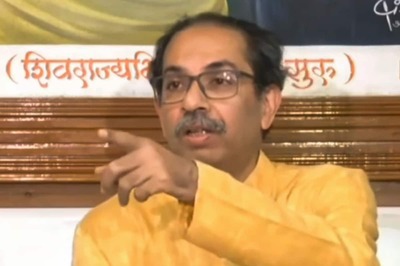
Comments
0 comment